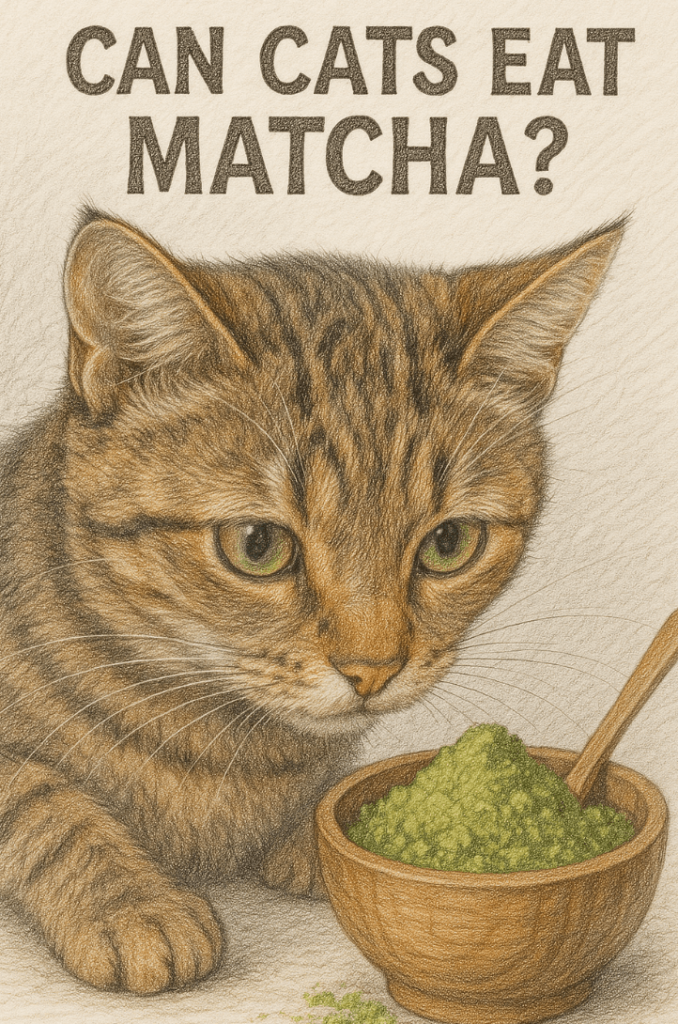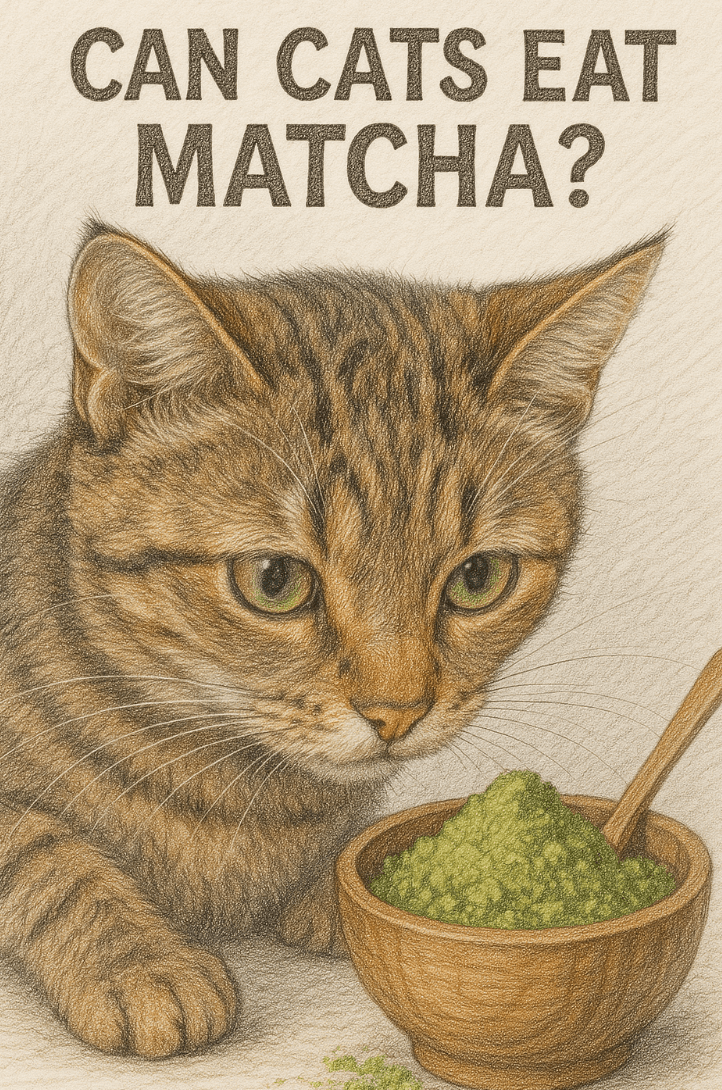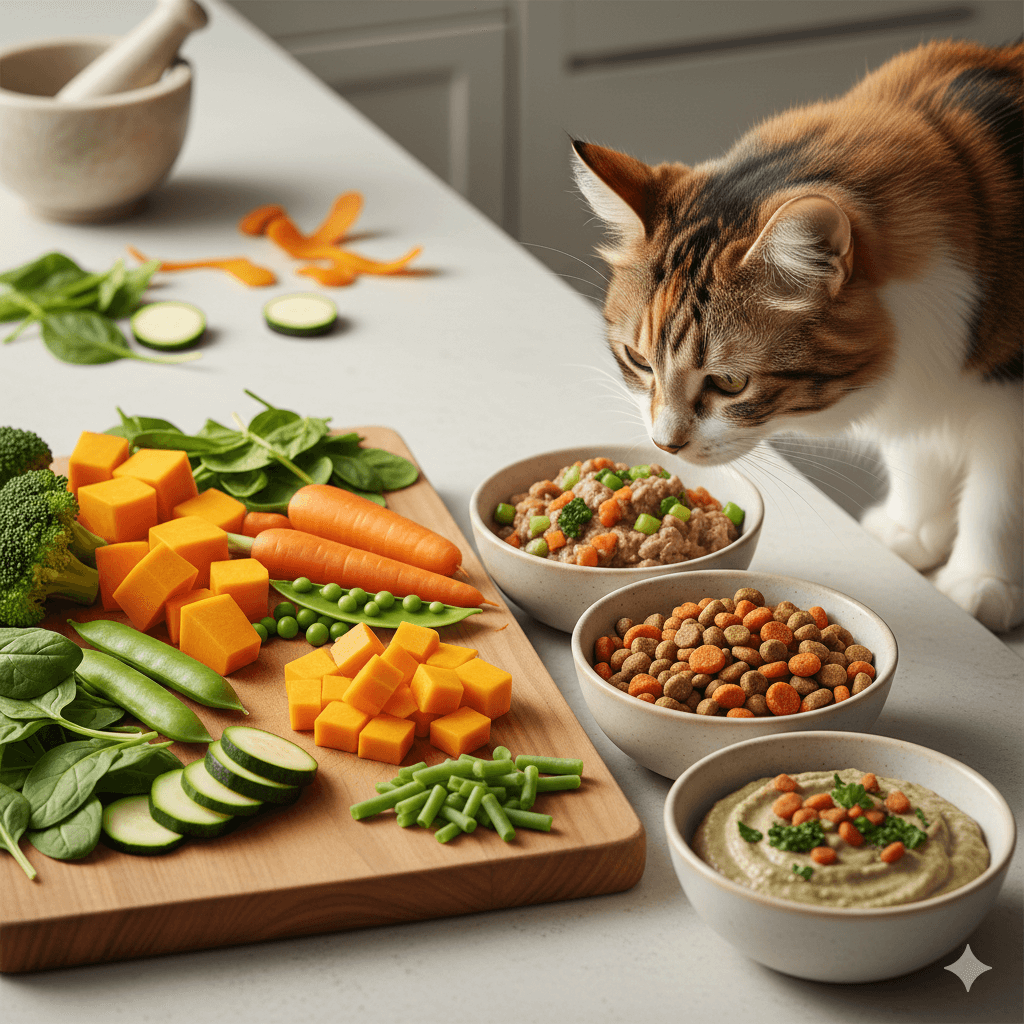Can Cats Eat Matcha?
With the growing popularity of matcha, many pet owners are curious about whether this vibrant green tea powder is safe for their feline friends. Matcha is celebrated for its health benefits in humans, including antioxidants and calming properties, but can cats enjoy these perks too? While cats have different dietary needs than humans, it’s essential to understand how matcha might affect them before offering it as a treat. In this blog post, we’ll explore the potential risks and benefits of matcha for cats, safe consumption guidelines, and alternatives to keep your furry companion happy and healthy.
Potential Risks of Feeding Matcha to Cats
While matcha may seem like a harmless or even beneficial addition to your cat’s diet, it comes with several risks that every pet owner should be aware of. These hazards can range from mild discomfort to severe health complications.
Caffeine Sensitivity:
Matcha contains caffeine, which is toxic to cats and can lead to symptoms like restlessness, rapid breathing, and heart palpitations.Digestive Upset:
Cats’ digestive systems are not designed to process plant-based substances like matcha, which can cause vomiting or diarrhea.Liver Stress:
The compounds in matcha may overburden a cat’s liver, especially if consumed in large amounts or over time.Allergic Reactions:
Some cats may develop allergic reactions, such as itching, swelling, or difficulty breathing, after consuming matcha.Interference with Medications:
Matcha could interact negatively with certain medications your cat may be taking, altering their effectiveness.
These risks highlight why caution is essential when considering giving matcha to your cat. Always prioritize their safety over curiosity or trends.
Benefits of Matcha (When Avoided by Cats)
Although matcha offers numerous health benefits for humans, these advantages do not translate to cats. Understanding why matcha isn’t suitable for felines helps clarify their unique dietary needs.
Rich in Antioxidants:
Matcha is packed with antioxidants like catechins, which help combat oxidative stress in humans—but cats lack the enzymes to metabolize these compounds effectively.Calming Effects:
The L-theanine in matcha promotes relaxation in humans, yet cats cannot process this amino acid safely, making it ineffective and potentially harmful.Boosts Metabolism:
While matcha supports metabolism in humans, cats rely on animal proteins for energy, rendering plant-based metabolism boosters unnecessary.Supports Immune Health:
Though matcha strengthens human immune systems, cats derive immunity support from their carnivorous diets, not plant-based supplements.Improves Focus:
Matcha enhances mental clarity in humans, but cats’ natural instincts and behaviors don’t require such cognitive enhancements.
These points emphasize why matcha is better suited for human consumption rather than being shared with cats.
Check this guide 👉Can Cats Eat Birds? Best 7 Expert Tips!
Check this guide 👉Can Cats Eat Curry? Best 7 Expert Tips!
Check this guide 👉Can Cats Eat Tamales? Best 7 Expert Tips!

Safe Treats for Cats | Foods to Avoid Giving Cats |
|---|---|
Cooked chicken (unseasoned) | Matcha or other caffeinated products |
Plain pumpkin puree | Chocolate or cocoa-based treats |
Catnip | Onions, garlic, or chives |
Small pieces of fish (cooked) | Alcohol or sugary foods |
Blueberries (in moderation) | Grapes or raisins |
How to Safely Introduce New Foods to Your Cat
If you’re considering introducing any new food to your cat’s diet, including plant-based options like matcha, it’s crucial to follow these guidelines to ensure their safety.
Consult Your Veterinarian First:
Always seek professional advice before offering your cat anything outside their regular diet.Start with Tiny Portions:
If approved by your vet, introduce only a minuscule amount to monitor for adverse reactions.Observe for Allergic Reactions:
Watch for signs like itching, swelling, vomiting, or diarrhea after introducing a new food.Avoid Trendy Human Foods:
Just because a food is popular among humans doesn’t mean it’s safe or beneficial for cats.Stick to Species-Appropriate Diets:
Cats are obligate carnivores, meaning their bodies thrive on animal-based proteins rather than plant-based alternatives.
By following these steps, you can minimize risks while exploring safe dietary options for your cat.
Signs Your Cat May Be Suffering from Food Toxicity
Even with precautions, accidents can happen if your cat accidentally ingests something harmful like matcha. Recognizing these warning signs allows you to act quickly and prevent further complications.
Vomiting or Diarrhea:
These symptoms often indicate gastrointestinal distress caused by consuming toxic substances.Excessive Drooling:
Drooling can signal nausea or oral irritation triggered by harmful ingredients.Lethargy or Weakness:
A sudden lack of energy may suggest poisoning or organ stress from ingesting unsafe foods.Rapid Breathing or Heart Rate:
Caffeine toxicity from matcha can cause these alarming symptoms, requiring immediate attention.
Seizures or Tremors:
In severe cases, ingestion of toxic foods may lead to neurological issues like seizures or muscle tremors.
Recognizing these signs early ensures prompt veterinary care and reduces the risk of long-term damage.
Common Mistakes to Avoid When Feeding Cats
Feeding cats requires careful consideration to avoid mistakes that could endanger their health. Here are some pitfalls to watch out for.
Assuming Human Foods Are Safe:
Many human foods, including matcha, are toxic to cats and should never be shared without vet approval.Overfeeding Treats:
Too many treats can lead to obesity and nutritional imbalances in cats.Ignoring Species-Specific Needs:
Cats require high levels of taurine and protein found in meat, not plant-based substitutes.Experimenting Without Research:
Trying trendy foods without consulting a vet can result in accidental poisoning.Neglecting Hydration:
Cats often don’t drink enough water, so wet food or hydration supplements may be necessary.
Avoiding these mistakes ensures a safer and healthier experience for your cat.
Alternatives That Mimic the Benefits of Matcha
If you’re looking for ways to enhance your cat’s health without using matcha, there are plenty of alternatives tailored to their needs.
High-Quality Protein Sources:
Offer lean meats like chicken, turkey, or beef to support muscle growth and overall vitality.Taurine Supplements:
Taurine is an essential amino acid for cats, available in many commercial cat foods or as a supplement.Cat Grass:
Some cats enjoy nibbling on cat grass, which aids digestion and provides fiber.Omega-3 Fatty Acids:
Found in fish oil, omega-3s promote skin, coat, and joint health without the risks of caffeine.Hydration Boosters:
Add water-rich foods like plain pumpkin or broth to encourage proper hydration.
These alternatives cater to your cat’s instincts while keeping them safe.
Understanding Your Cat’s Natural Instincts Around Food
Cats are naturally drawn to foods that align with their evolutionary history as hunters. Understanding their instincts helps explain their dietary preferences.
Carnivorous Nature:
Wild cats consume prey animals, deriving nutrients from meat, organs, and bones—not plants.Selective Eating Habits:
Cats are picky eaters by nature, instinctively avoiding foods that don’t meet their nutritional needs.Curiosity Toward Human Foods:
Cats may investigate what their owners eat, but curiosity doesn’t equate to compatibility.Preference for Freshness:
Cats prefer fresh, high-quality food, often rejecting stale or spoiled items.Limited Taste Buds:
With fewer taste buds than humans, cats rely on smell and texture to determine food appeal.
By recognizing these behaviors, you can better address your cat’s needs in a safe and controlled manner.
Frequently Asked Questions About Cats and Matcha
Is matcha safe for cats in small amounts?
No, even small amounts of matcha contain caffeine and other compounds that are harmful to cats.
What should I do if my cat eats matcha?
Contact your veterinarian immediately and monitor your cat for symptoms of toxicity.
Can kittens tolerate matcha better than adult cats?
No, kittens are even more vulnerable to toxins due to their developing systems.
Are there any cat-safe teas or herbal remedies?
Most teas and herbs are unsafe for cats; always consult a vet before trying anything new.
Why do cats dislike plant-based foods like matcha?
Cats are obligate carnivores, meaning their bodies are designed to digest animal proteins, not plants.
Prioritizing Your Cat’s Health Over Trends
While matcha may be a trendy superfood for humans, it’s not suitable for our feline companions. Cats have unique dietary needs that revolve around animal-based proteins, and introducing plant-based substances like matcha can pose serious risks to their health. By understanding what foods are safe and avoiding those that aren’t, you can ensure your cat stays happy, healthy, and thriving. Always consult your veterinarian before making changes to your cat’s diet, and remember that their well-being should always come first.
Can a Cat Be Tested for Rabies? Best 7 Expert Tips! – Learn if testing is possible, understand the process, and discover prevention tips to keep your cat safe from rabies.
Can a Dog Be Tested for Rabies? Best 7 Expert Tips! – Learn how rabies testing works, why it’s critical, and what every dog owner needs to know.
Best Vegetables for Cat Food: Best 7 Expert Tips! – Discover safe, nutritious veggies to boost your cat’s diet, support digestion, and enhance overall health naturally.
Best Vegetables for Dog Food: Best 7 Expert Tips! – Discover safe, nutritious veggies to boost your dog’s diet, support digestion, and enhance overall health naturally.





